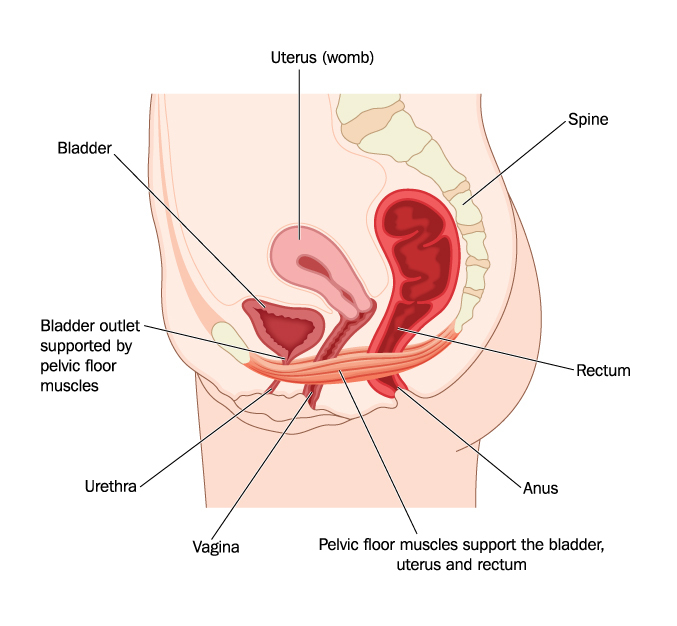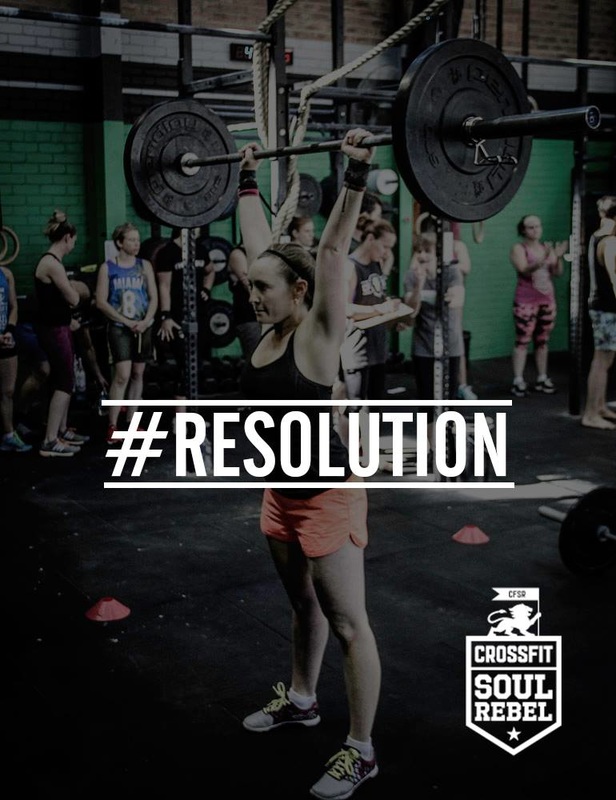|
“But if my muscle is tight, why am I still leaking?” This is a great question. And the best way to answer it is to imagine we are talking about a different group of muscles in your body, such as your neck muscles. Most people will have experienced a sore and painful neck at some point in their life. And when you’ve had that sore neck, it’s often hard to turn your head, or you do so with trepidation, much more slowly than usual. Well, I bet during this uncomfortable time, you’ve also reached up to rub your sore neck and possibly touched the major muscle groups that are responsible for these neck movements. Did you ever notice how tight and hard they seemed under your fingertips? So, we have a sore neck, we have tight muscles and we have loss of function. This is exactly what is happening in your pelvic floor. Most often, something will have occurred in the pelvis to cause your pelvic floor muscles to became overactive and tight. This incident may have been, for example: a painful experience with constipation, a history of recurrent urinary tract infections or thrush, or an uncomfortable sexual experience. As a result, sometimes the pelvic floor muscles will go into spasm, or the individual may begin holding tension in the pelvic floor muscles as a way of subconsciously providing protection to the area. This causes the muscles to become short and stiffened. When muscles are held in a shortened position, they have less ability to contract and perform their function in a responsive and timely manner. If we go back to the example of our neck; turning your head (which is the function of the neck muscles), may be reduced, and will be performed more slowly in the presence of tight, stiff neck muscles. In the case of the pelvic floor, the ability to engage and contract to support the bladder and occlude the urethra (which is the function of the pelvic floor), will also be reduced, and will be performed more slowly when the muscles are tight and stiff, and this will lead to urinary leakage. So, if this is the case, asking this woman to do lots of pelvic floor exercises focused on squeezing and holding is not going to improve her urinary leaking. In fact, it may make it worse, or give her a new condition due to even more spasming in her pelvic floor muscles.
Instead, what will assist this woman is if she can learn to downtrain the muscle tension. This can be taught and practiced and once we have a healthy muscle, sitting at a good resting length, we can then teach appropriate functional recruitment of the pelvic floor which will lead to long lasting continence.
1 Comment
So, I do Crossfit. And I’m a pelvic floor physiotherapist. If you haven’t heard….these two things combined are a little controversial. When Crossfit made and released the below video, I am sure they did not anticipate the barrage of criticism that was unleashed by hundreds of enraged continence physio’s worldwide. We can be a passionate bunch….we normally only need a little poke to get started, but this was like waving a red flag at a bull. So much material to tear apart! And they couldn’t have made it easier…….Geez, they started by calling the medical condition by the wrong name! So, enough talking - if you haven’t seen it, here it is: Crazy? Yes. Appalling? Indeed. Now, as I referred to before, there has been a barrage of well articulated articles written by pelvic floor health professionals about everything that is wrong with this clip. Here are two of the best which I encourage you to read: http://physiodetective.com/2013/06/27/crossfit-your-pelvic-floor-and-peeing-during-workouts/ https://pelvicguru.com/2013/06/22/dear-crossfit-and-crossfit-gynecologist-im-appalled-theres-help-for-peeing-during-workouts/ But, despite all this….I still do Crossfit. And here’s why:
So, what about the pelvic floor? Well, Stress Urinary Incontinence (which is the internationally accepted correct terminology) occurs when the intra-abdominal pressure above the bladder exceeds the closure pressure generated by the pelvic floor muscles and soft tissue structures below the bladder. This pressure can come from weight, from impact caused by the ground reaction force, and by bracing the abdominals. The thing is, yes these things can occur during Crossfit, but they also occur during Netball, Tennis, Soccer, Football, Dancing, Running, Jumping on the trampoline and any other activity that involves pushing your body. Should we accept it if we leak during ANY of these activities? No. And that’s where The Crossfit clip went so terribly wrong. Don’t accept it, treat your incontinence as you would treat any injury in your body - don’t push through it, get it assessed, scale back until you can do the movement with correct technique and no dysfunction, which in the case of the pelvic floor muscles, means no urinary leaking or feelings of heaviness. If you are thinking about starting Crossfit, research your choices. Choose a box that has experienced coaches, has an induction training program, that limits class sizes so technique can be monitored, and that doesn’t pressure you to add weight or intensity unless you are ready. If you are concerned about your pelvic floor function or don’t know how to control your pelvic floor muscles, make an appointment with a pelvic floor and continence physio who can answer all your questions or visit my website at womankindphysiotherapy.com. Enjoy your WOD! “You will, but not yet”
This is a phrase I find myself saying a lot. I say it to the beautiful woman, sitting in my room with tears threatening to roll down her cheeks as she tells me she wants to have ‘normal sex’ with her husband. She has come to see me because since her baby was born 5 months ago, penetrative sex has hurt. They have tried three times now and it feels like it’s getting worse, not better. She tells me her sister said she felt back to ‘normal’ about 8 weeks after giving birth and she thought she’d be back to normal by now too. I say it to the beautiful woman who has started training for the half marathon. She has always run 5kms with no problem, but since she started training beyond 10kms she has been leaking urine. She thought this was something that only happened after you had kids? She hasn’t even done that yet, and she is worried this will get worse. But she is even more worried she’ll never be able to achieve her goal she and her friend have set themselves of finishing the half marathon together. I say it to the beautiful woman who gave birth 3 weeks ago and wants her figure back but her tummy is still soft and protrudes forward when she stands. She is worried about muscle separation and wants to get back to yoga as soon as she can, but her baby is clingy and wants to breastfeed all the time. She is exhausted and wants to know why her recovery seems to be taking longer than she expected. Our bodies are amazing. They are capable of producing and sustaining life, and achieving brilliant physical feats of strength, endurance and flexibility. Although our bodies are miraculous, they are not magic. Tissue healing is incredible, torn or stretched tissue will mend given time and the appropriate conditions. Weakened muscles can strengthen with consistent training and good technique. In the world we live in, we are inpatient. We are used to getting things before we have earned them. This does not happen with the human body. So I tell these beautiful women, “you will do these things, but not yet.” Do not be pressured by your friends, sisters, or social media feeds to rush your body. Seek good advice from a source you trust and follow your own path to recovery that feels right for your body. You have the rest of your life to achieve these goals, right now, it is time to heal and rehabilitate. A lot of people, mostly clients, ask me why I got into pelvic floor physiotherapy. Often the question comes just as I'm about to do an examination and often it's framed like; “How did a nice, young girl like you find yourself doing something like this?” I normally respond by saying "Well, having a couple of kids makes you interested in the pelvic floor!" or "I think it's the area in physio where I can have the greatest effect on people's quality of life". Both of these statements are very true. But the real reason I became interested and specialised in women's health is that after my first baby, Lily who is now aged 7. I developed a vaginal prolapse. I was 24, and felt like I was falling apart. I was so horrified that someone like me, a physio with information and education on how to look after my body during pregnancy and postpartum, had still developed a prolapse. I felt defeated. It sent me into a spiral of depression and self pity about my physical future and the possibility of having more children. How had no-one warned me about this? Where had I gone wrong? Was I expected to live with this diagnosis and sensation for the rest of my life? I started learning everything I could about prolapse and pelvic floor health. One thing led to another and I was sitting in a post-graduate class at Melbourne Uni studying Advanced Rehabilitation of the Pelvic Floor, I loved it, so enrolled in another course this time, studying Exercise for Women. I realised there was so much more we needed to do to get the right information out there to pregnant and postpartum women. So, where had I gone wrong? Despite the fact I should have known better, I had let my pride get the better of me. I had conformed to what I saw on magazine covers and Facebook feeds and tried to return to my pre-pregnant self within weeks of delivering my baby. It wasn’t necessarily about looking great, it was just about being independent and capable. I picked up prams, grocery bags, washing baskets, even assisted packing and lifting boxes when we moved house at 6 weeks post partum. I was determined to be seen by everyone, as one of those women, who are competent, successful and fabulous. It's not to say the information about how to do it better wasn't out there. It's just that the noise from my newsfeed of stories about women 'bouncing back' was so much louder and frankly, more exciting. But even if I may have fooled a few friends or family as to my competency or fabulousness, it was skin deep, and not worth it. So, I now spend a lot of time discussing these issues with my family, friends and very importantly the women in my professional care. It is a driving passion for me to educated women about how pregnancy, labour, birth and postpartum recovery not just should be done, but HAS to be done. It is my goal to dispel myths and images of perfection like this… And saturate my community with real images like this…. I am very pleased to say that now, I am no longer bothered by symptoms of my prolapse. I delivered my second baby, Eliza (who was 4.6kgs), 3 years after Lily was born. I heeded all my own information about optimal recovery immediately postpartum and long term, and my prolapse stayed at bay. I now regularly participate in fun runs, lift weights at the gym and jump on the trampoline with my kids. Prolapse management and pelvic floor health will always be on the agenda for me, as it should be for everyone. But hopefully, my story and my message will mean less young women are diagnosed due to impossible and unrealistic pressures they may be putting on themselves.
|
Welcome!Hi! Welcome to The Blog! Please be aware, Womankind Physiotherapy's blog is not intended to replace information and advice from your health care provider. For specific concerns regarding your health you must seek individualised care by your preferred provider.
Archives
March 2021
Categories
All
|
Women's Health Physiotherapists, Pelvic Floor Physiotherapists, Pregnancy Physiotherapists, Pre and Post Natal Physio, Pelvic Health Physio,
Pregnancy Pilates, Ultrasound for Mastitis, Breastfeeding Physio, Blocked Ducts, Pelvic Floor Exercise, Pregnancy Exercise.
Eltham. Yarrambat. Greensborough, Montmorency, Lower Plenty, Diamond Creek, Research, Rosanna, Yallambie, Watsonia.
Pregnancy Pilates, Ultrasound for Mastitis, Breastfeeding Physio, Blocked Ducts, Pelvic Floor Exercise, Pregnancy Exercise.
Eltham. Yarrambat. Greensborough, Montmorency, Lower Plenty, Diamond Creek, Research, Rosanna, Yallambie, Watsonia.
Copyright 2016 Womankind Physiotherapy












 RSS Feed
RSS Feed